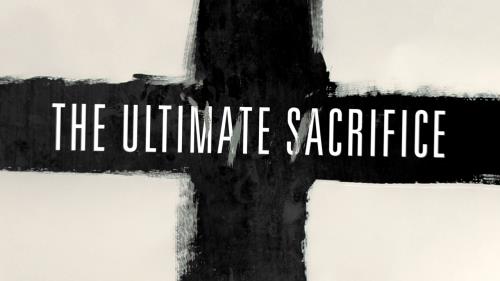-
Getting To The Heart Of Things – Part 1 Series
Contributed by Warren Lamb on Oct 6, 2007 (message contributor)
Summary: In our drama today, we see it once again. This is not an authorization to blast people full-force with anger, vehemence or vitriol. It is, however, a demonstration to us that we have the biblical, God-ordained, Christian duty to be truly honest when we en
We could actually entitle this study “Jesus and the Forbidding Pharisees, Part 6”. What we encounter today is almost a continuation of our study of Matthew 12. In that series of lesson, we examined the dynamic discrepancies between what the Pharisees practiced and promoted and what God actually commanded and expected.
Our next series of lessons are taking us even deeper into the heart of God on these matters of faith and practice. They have even greater significance than what the Scribes and Pharisees even thought they have, but in completely different ways and meanings.
When we began our study of Matthew 12, I opened with this quote from William Shakespeare’s play, “Julius Caesar”: “There is a tide in the affairs of men, which, taken at the flood, leads on to fortune; omitted, all the voyage of their life is bound in shallows and in miseries.”
As our drama opens today, we find this statement to be ever more true in the life and ministry of Christ. On this occasion, Jesus is surrounded by those He is always surrounded by – the sick, the lame, the needy, the diseased, the blind, the demon possessed – when He is approached by a special delegation of the nation of Israel’s religious leaders.
This we know from the statement in Matthew 15:1, “Then some Pharisees and scribes came to Jesus from Jerusalem…” There were Scribes and Pharisees throughout the country, but those who were in Jerusalem were special bunch.
The Scribes and Pharisees in Jerusalem were the elite of their parties. These were the brightest, the most learned, the most scholarly, the most well-educated, the most well-read, the most studious, the most knowledgeable and the most inundated with the culture of their religion. There were quite forboding in there appearance, with all of the outer robes and trappings of their elevated offices and stature among the people.
It is these men who come to Jesus and bring accusation against Him. They do so by means of a bit of alight-of-hand, not really confronting Him directly. Knowing Jesus to be a man of great knowledge in the Law of Moses and the rest of the Word of God, they approached with the conventional protocol they would a member of their own class – just in case they might be wrong about their suspicions. Later on, they will forgo all pretense of protocol and etiquette, attacking Him personally, directly, and even physically. But, as I said, that will come much later.
For now, they hold to giving the appearance of propriety to those who are witnesses to their interchange. They ask Jesus (verse 2), “Why do Your disciples break the tradition of the elders? For they do not wash their hands when they eat bread."
The structure of their question is strategic and coy, while being accusatory and condemning at the same time. It is strategic in that they come to Jesus asking about a tradition of the elders of the Jews that is known and observed by the vast majority of the Jews – the ritual hand-washing before eating.
Mark gives us a little better indication of this in his account of this incident when he says, “For the Pharisees and all the Jews do not eat unless they carefully wash their hands, thus observing the traditions of the elders (Mark 7:3).”
This practice of hand washing wasn’t at all what we think of as hygienic hand washing today. Theirs was an extremely exacting and highly ritualized practice that specified the amount of water that was to be used, how it was to be applied, the number of times it should be changed, the number of people who could wash at a time and many, many more details.
This got even more complicated when it was applied to other things, like cups and bowls and pots and vessels made out of brass, vessels made out of wood, vessels made out of pottery, tables, and almost anything that hand anything to do with eating or drinking. Mark again mentions this in his account in Mark 7:4, when he says, “and when they come from the market place, they do not eat unless they cleanse themselves; and there are many other things which they have received in order to observe, such as the washing of cups and pitchers and copper pots.”
Let’s talk about these “elders” that are mentioned here by the Scribes and Pharisees from Jerusalem. It was their contention that Moses was given two sets of laws when he was on the mountain of God; one set was written down on the two tablets and was known as The Ten Commandments. The other set there believed were verbal and were handed down from Moses to Joshua, Joshua to the Judges, from the Judges to and through the prophets, and that they were kept pure until it was recorded in the Talmuds, the first of which was finally put in written form about 200 years before Christ. Until then, it was all passed down orally, yet with exacting detail.

 Sermon Central
Sermon Central



